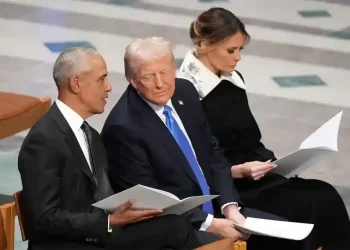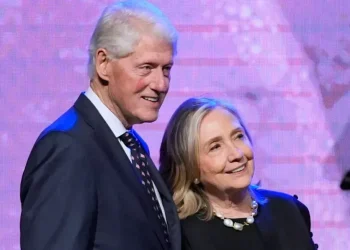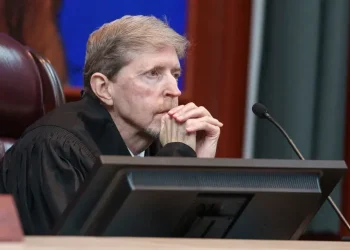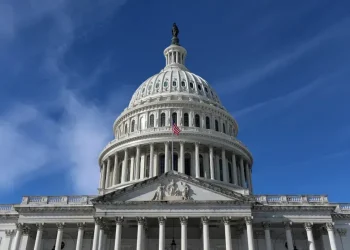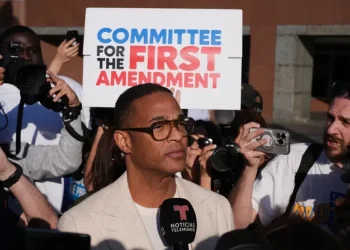Bipartisan Talks Intensify in Washington as Shutdown Drags Into 37th Day Without Resolution
Efforts to end the longest government shutdown in U.S. history have intensified on Capitol Hill, as Senate leaders work to finalize a bipartisan package aimed at reopening federal agencies. But deep divisions remain over health care funding and spending priorities, leaving millions of Americans affected by stalled services and unpaid work uncertain when relief will come.
New Push for a Bipartisan Funding Deal
Senate Majority Leader John Thune said Thursday that he plans to move forward with a new bipartisan proposal to reopen portions of the federal government and extend funding for other agencies through early next year. The effort, which comes amid growing public frustration and political fatigue, represents the most significant attempt yet to resolve the 37-day impasse.
The proposed package would restore funding for key programs — including food assistance, veterans’ benefits, and congressional operations — while extending temporary funding for the rest of the government until December or January. Thune said procedural votes could begin as soon as Friday, testing whether Democrats are willing to support the compromise.
The move follows President Donald Trump’s private meeting with Senate Republicans on Wednesday, where he acknowledged the shutdown had been a “negative factor” in recent elections that favored Democrats.
Divisions Within the Democratic Caucus
Despite growing pressure to act, Democrats remain divided on how to proceed. Some lawmakers insist the government should not reopen without firm guarantees that health care subsidies under the Affordable Care Act — set to expire in January — will be extended. Others support reopening first and negotiating health care policy later.
“Working on unity and working on health care,” said Democratic Sen. Sheldon Whitehouse of Rhode Island after a closed-door caucus meeting.
Senate Democratic leader Chuck Schumer has urged Trump to meet directly with congressional Democrats, but the White House has shown little interest. “Donald Trump clearly is feeling pressure to bring this shutdown to an end,” Schumer said Thursday.
Republican Efforts to Secure Votes
Republicans have struggled for weeks to reach the 60 votes needed to pass a funding package. Thune’s plan seeks to build on a framework sketched out by moderate Democrats such as Sen. Jeanne Shaheen of New Hampshire. Her proposal would reopen the government now while committing to a future vote on extending Affordable Care Act subsidies.
But the measure’s success depends heavily on leadership in both chambers. House Speaker Mike Johnson, a Louisiana Republican, said he would not make any promises to Democrats about scheduling a health care vote. “I’m not promising anybody anything,” Johnson told reporters Thursday.
His stance was immediately criticized by moderate negotiators, including Michigan Sen. Gary Peters, who called it “a significant problem.” “We have to make sure we have a deal that we can get broad support for,” he said.
Mounting Pressure From Public and Workers
The continued shutdown has left hundreds of thousands of federal employees without pay and disrupted critical programs ranging from airport security to food assistance. Lawmakers in both parties have acknowledged the growing strain on workers and the public as frustration builds.
Thune’s decision to keep the Senate in session over the weekend underscores the urgency to reach an agreement before the effects of the shutdown deepen further. “We can’t keep the government locked down indefinitely,” one Senate aide said. “There’s bipartisan agreement that something must give soon.”
Closed-Door Negotiations Show Signs of Movement
Sources familiar with ongoing negotiations say both parties are exploring additional provisions that could make the final deal more acceptable. Among them is a Republican proposal to reverse certain federal worker dismissals that occurred during the shutdown and ensure all furloughed employees receive back pay.
Sen. Susan Collins, a moderate Republican and chair of the Senate Appropriations Committee, confirmed discussions on the matter. “We’re still negotiating that language,” Collins said. “But I strongly believe federal employees who were furloughed should be given back pay and that those who were terminated should be recalled.”
Democratic negotiators said such measures could help rebuild trust and goodwill between the parties after weeks of tense exchanges and stalled progress.
Health Care Remains the Core Sticking Point
At the center of the deadlock is the question of health care funding. Many Democrats, buoyed by their recent election wins, say they have a mandate to protect Affordable Care Act subsidies and are unwilling to pass a funding bill that leaves the issue unresolved.
“A vote on the health care subsidies has got to mean something,” said Vermont Sen. Bernie Sanders, an independent who caucuses with Democrats. “That means a commitment from House leadership and the president that the legislation will actually be signed into law.”
Republicans, however, are reluctant to tie health care negotiations to government funding, arguing that doing so could complicate future budget talks.
Trump’s Pressure Campaign on the Senate
While lawmakers continue to negotiate, President Trump has intensified his push to scrap the Senate filibuster — the 60-vote rule that requires bipartisan support for major legislation. In a video message Wednesday, Trump called the threshold “obsolete” and said it should be “terminated” to speed up the reopening process.
His proposal was swiftly rejected by several GOP senators, including Thune, who said the rule protects minority-party rights and prevents hasty policymaking. “Ending the filibuster is not the solution,” Thune said.
Still, Trump’s growing impatience has added another layer of complexity to already delicate talks.
Path Forward Uncertain as Deadlines Approach
Despite optimism among some negotiators, a final agreement remains elusive. The current House-passed spending bill — rejected 14 times by Senate Democrats — expires on Nov. 21. Without a breakthrough, agencies could face deeper operational paralysis and employees may continue to miss paychecks into the holiday season.
For now, the Senate is expected to remain in session through the weekend as staffers work behind closed doors to bridge the remaining divides. Lawmakers from both parties say they remain hopeful but cautious.
“There’s genuine progress,” said one Democratic aide involved in the talks. “But we’re still a long way from shaking hands on a deal.”
This article was rewritten by JournosNews.com based on verified reporting from trusted sources. The content has been independently reviewed, fact-checked, and edited for accuracy, neutrality, tone, and global readability in accordance with Google News and AdSense standards.
All opinions, quotes, or statements from contributors, experts, or sourced organizations do not necessarily reflect the views of JournosNews.com. JournosNews.com maintains full editorial independence from any external funders, sponsors, or organizations.
Stay informed with JournosNews.com — your trusted source for verified global reporting and in-depth analysis. Follow us on Google News, BlueSky, and X for real-time updates.

